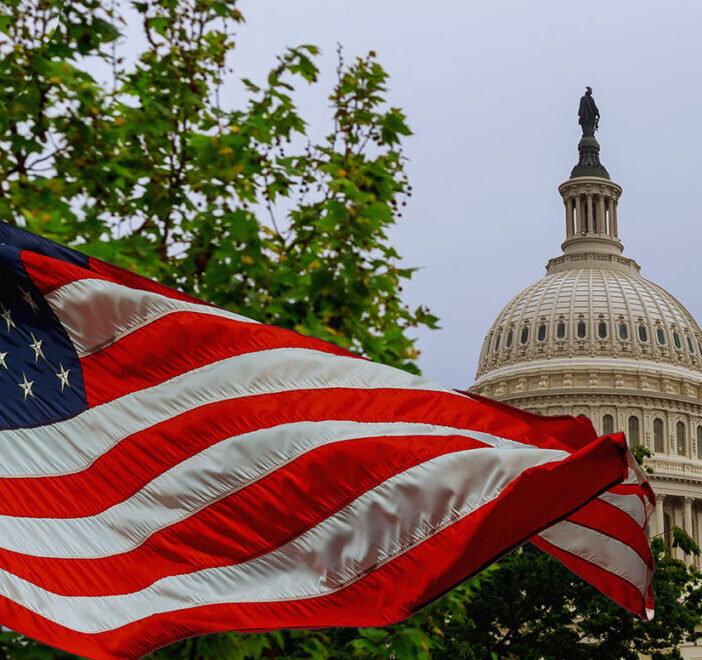Another LeadingAge Workforce Win Included in FY 2023 Labor HHS Appropriations Bill
On June 30, the House Appropriations Committee approved the fiscal year (FY) 2023 Labor, Health and Human Services (HHS), Education and Related Agencies Appropriations bill. Overall, for FY 2023, the bill includes $242.1 billion, an increase of $28.5 billion – 13 percent – above FY 2022 funding levels. According to the House Appropriations Committee’s press release, the allocations would help to create and sustain “good-paying American jobs through investments in job training, apprenticeship programs, and worker protection.” With this historic increase, the bill includes several wins for LeadingAge.
In addition to approving the bill, the Committee also amended and made public the report accompanying the bill. The bill’s “report” sheds light on congressional priorities and directives for programs, use of federal resources, and concerns of congressional members.
HRSA Urged to Address Aging Services Workforce Shortages. On June 30, the Committee adopted a manager’s amendment from Committee Chair Rosa DeLauro (D-CT) to add language to the bill’s accompanying report urging the Health Resources and Services Administration (HRSA) to address aging services workforce shortages.
“The Committee supports HRSA’s efforts to develop the workforce needed to care for a rapidly aging U.S. population. The Committee encourages HRSA to address the skilled workforce needs of seniors through existing workforce education and training programs,” the new language states.
Additionally, the Committee report requires a HRSA report and analysis of technology’s role in the public health care workforce. The Committee recognizes the important role that HHS and its operating divisions continue to provide to support and protect the public health workforce during the COVID–19 pandemic. The Committee directs HRSA to submit the report to the Committee within 18 months of enactment of this appropriations bill on the challenges associated with hiring, recruiting, and retaining the Federal, State, local, tribal and territorial public health workforce. This study, according to the report, should include a specific analysis of how technology, especially hands-free technology, could help to protect clinicians’ physical safety and ease the burden of patient care, thereby increasing retention of the public health workforce.
DOL Provisions. The Labor-HHS Appropriations bill proposes $15 billion in funds for the Department of Labor (DOL), a $1.9 billion increase above the FY 2022 funding level, and $125 million more than President Biden requested, according to the committee report.
Registered Apprenticeships Program. The Committee’s report gives important background to the bill’s $303 million to expand the DOL’s Registered Apprenticeships Program to traditionally underrepresented communities. This is $68 million above the FY 2022 level, and the same as President Biden’s request. The Committee report includes language that states “apprenticeships are an important path to the middle-class, and they are directing DOL to accelerate efforts to recruit and retain women as part of these programs and to ensure equal compensation.” Prior to approval, the Committee opposed several labor-related Republican amendments, including one that would funnel funds to apprenticeship programs overseen by the private sector known as Industry-Recognized Apprenticeship Programs.
The Employment and Training Administration. The bill appropriates $11.8 billion to DOL’s Employment and Training Administration (ETA), a $1.3 billion increase above the FY 2022 funding level. The ETA is the division within the DOL that processes “Schedule A” Prevailing Wage Determinations for foreign nurses. On June 13, 2022, LeadingAge (and AHCA/NCAL), participated in a virtual meeting with staff from the ETA to strongly consider changes to the “Schedule A” petitions, which could improve the process of allowing registered nurses to permanently enter the country. The meeting also provided an opportunity to highlight our support for increasing federal funds for the Registered Apprenticeship program
Next Steps. The House of Representatives is expected to vote on the Labor-HHS Appropriations bill after the July 4th Congressional recess. The Senate Appropriations Committee will produce its appropriations bills, and an accompanying report, possibly before the August Congressional Recess, and it is likely that their bills will reflect funding levels that are not the same as the House bills. Ideally, the 12 federal appropriations bills to fund the federal government must be formally adopted prior to the new fiscal year, which begins, October 1. LeadingAge will continue to advocate for its key workforce priorities for older adults as the FY 2023 Labor-HHS Appropriations bills move through this process.
Read more about the L-HHS Appropriations Subcommittee consideration here.
You can access the Labor-HHS bill report here, and the bill text here.

Most Recommended
November 08, 2024
 HOTMA: New Rules for Housing
HOTMA: New Rules for Housing
November 06, 2024
 Colleagues on the Move, November 6, 2024
Colleagues on the Move, November 6, 2024
November 06, 2024
 Analysis: What Does the Final CY2025 Home Health Rule Include?
Analysis: What Does the Final CY2025 Home Health Rule Include?
October 29, 2024
Katie Smith Sloan Urges Members to Build a Movement, Take Action
Recently Added
December 13, 2024
HUD Finalizes 30-Day Eviction Notification Rule
December 12, 2024
HUD Releases 2025 Operating Cost Adjustment Factors
December 10, 2024



